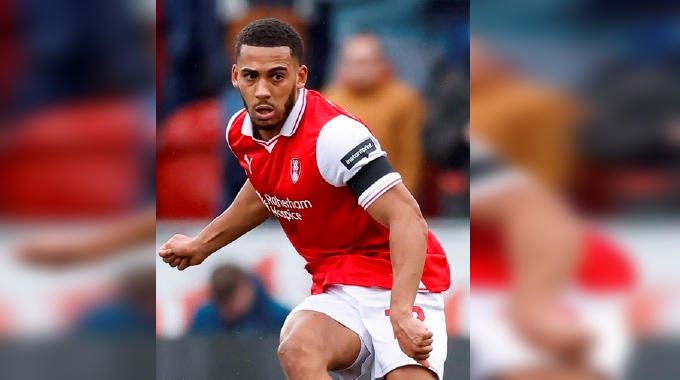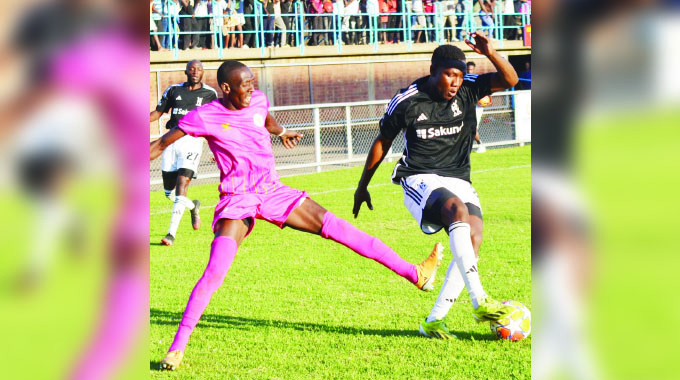British brigade: A solution for Zimbabwe’s football or is local still lekker?

Stanford Chiwanga , [email protected]
THE selection of a national football team frequently sparks intense debate, particularly concerning the balance between foreign-based and domestically nurtured players.
Norman Mapeza’s squad, which includes eight players from Britain and others scattered in other foreign leagues, has rekindled this discussion, leading to scrutiny of the merits and drawbacks of each approach.
Foreign-based players often contribute a wealth of experience gained in more competitive leagues.
This exposure can prove invaluable, as evidenced by Thailand, where international players like Darko Rakocevic and Kazuto Kushida have elevated the standard of not only the national team but also the league. The English Premier League, renowned for its diverse international talent, exemplifies how foreign players can bolster the technical skills, tactical acumen and intensity of local talent.
The influence of players from foreign leagues on national football teams has been notable across many African nations, including Cape Verde, Angola, Nigeria and Cameroon. These players frequently bring essential experience and skills acquired in more challenging environments, which can significantly enhance national team performances.
For Cape Verde, the integration of players with Cape Verdean heritage active in European leagues has been instrumental in their recent football triumphs, including successive qualifications for the Africa Cup of Nations. Angola, too, has reaped the benefits of foreign-based players, with research suggesting that their presence can enhance gameplay through increased precision in passing and ball possession.

Joel Phuthi
Nigeria’s football landscape has been profoundly shaped by its European-league players, who have not only heightened the profile of Nigerian football but also made substantial contributions to the national team’s achievements. Similarly, Cameroon’s football narrative is enriched by players who have distinguished themselves internationally, thereby benefiting the national team.
However, an over-reliance on foreign players may hinder the development of local talent. In Thailand, the presence of over 120 foreign players has raised concerns about diminished opportunities for local players. Additionally, the influx of foreign players does not always correlate with improved performance among local teammates, as the impact of foreign coaches has proven to be more influential.
Conversely, a national team predominantly composed of local players can cultivate a robust sense of camaraderie and mutual understanding. Domestic players are typically more attuned to the nation’s football culture and may possess a stronger connection to the national identity. For example, Guyana’s national football team, the Golden Jaguars, recently fielded a majority of local players, underscoring a dedication to nurturing homegrown talent.
South Africa’s national team, Bafana Bafana, has a rich history of local talent shaping its successes. The team’s victory in the 1996 Africa Cup of Nations was a testament to the quality of local players, with the likes of Doctor Khumalo and Mark Fish playing pivotal roles. Local players have been the heart and soul of the team, fostering a strong national identity and unity. The domestic Premier Soccer League (PSL) has also seen growth in quality and competitiveness, which has contributed to the development of players who can perform on the international stage. At the recent Afcon tournament, South Africa reached the semi-finals with a team featuring mostly players from Mamelodi Sundowns.
Nevertheless, local players may lack the high-level competition exposure that their foreign-based counterparts enjoy, potentially leading to a disparity in skill and tactical knowledge.
Moreover, without the impetus provided by foreign players, local athletes might not be sufficiently challenged to realise their utmost potential.
The debate between the British brigade and local talent is not a matter of black and white. Both foreign and local players bring unique advantages and challenges to the table. Ultimately, the goal should be to create a harmonious blend that leverages the strengths of both to build a competitive and cohesive national team. The key lies in not letting one group overshadow the other, ensuring that the development of local talent remains a priority while also benefiting from the expertise that foreign-based players can offer.
Warriors Squad
Goalkeepers
Martin Mapisa (Dynamos), Donovan Bernard (Chicken Inn), Marley Tavaziva (Brentford B).
Defenders
Shane Maroodza (Huddersfield Town), Divine Lunga (Mamelodi Sundowns), Gerald Takwara (Ohod FC), Kevin Moyo (Dynamos), Teenage Hadebe (Tumosan Konyaspor), Peter Muduhwa (Highlanders), Munashe Garananga (KV Mechelen), Emmanuel Jalai (Dynamos), Jordan Zemura (Udinese Calcio), Joey Phuthi (Sheffield Wednesday), Brendan Joel Zibusiso Galloway (Plymouth Argyle)
Midfielders
Marshall Munetsi (Stade de Rheims) Junior Makunike (Simba Bhora), Andy Rinomhota (Rotherham United), Tivonge Rushesha (Reading), Walter Musona (Simba Bhora)
Strikers
Tinotenda Kadewere (FC Nantes), Daniel Msendami (Jwaneng Galaxy), Tawanda Maswanhise (Leicester City), Macauley Bonne (Cambridge United).











Comments